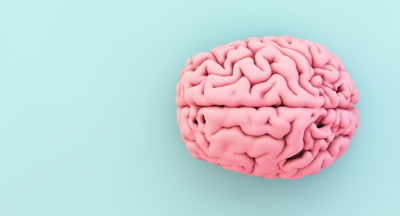
How Can You Prevent Adderall Withdrawal?
What is Adderall Withdrawal?
Adderall is a commonly prescribed medication for individuals with attention deficit hyperactivity disorder (ADHD) and narcolepsy. While it can be an effective treatment for these conditions, it is a Schedule II drug, meaning it has a high potential for abuse and dependence. Withdrawal symptoms can occur when an individual stops taking Adderall, which can be uncomfortable and disruptive. In this blog post, we will explore ways to prevent Adderall withdrawal symptoms, including tapering off the medication, managing symptoms with alternative treatments, and using neurofeedback.
What are Adderall withdrawal symptoms?
Adderall withdrawal symptoms can vary from person to person but may include:
- Fatigue
- Depression
- Irritability
- Anxiety
- Insomnia or hypersomnia
- Increased appetite
- Headaches
- Cravings for Adderall
How to Prevent Symptoms of Adderall Withdrawal
- Taper off the medication: The best way to prevent Adderall withdrawal symptoms is to slowly taper off the medication under the guidance of a healthcare
professional. Abruptly stopping Adderall can lead to a range of withdrawal symptoms, so it is important to work with a professional to develop a tapering
schedule that is appropriate for your individual needs. - Manage symptoms with alternative treatments: Alternative treatments can be used to manage symptoms associated with Adderall withdrawal. These
treatments include:- Exercise: Exercise can help reduce symptoms of depression and anxiety, improve sleep quality, and increase energy levels. Regular exercise can also
help regulate mood and reduce cravings for Adderall. - Nutritional support: Nutritional support, including a healthy diet and supplements, can help reduce symptoms of fatigue, depression, and anxiety. Vitamins and minerals that may be particularly helpful during Adderall withdrawal include B vitamins, magnesium, and omega-3 fatty acids.
- Behavioral therapy: Behavioral therapy can help individuals develop coping strategies for managing symptoms of withdrawal. This may include cognitive-behavioral therapy, which focuses on changing negative thought patterns and behaviors, or mindfulness-based therapy, which can help reduce symptoms of anxiety and depression.
- Medication: Medications may be used to manage symptoms of withdrawal, including antidepressants or anti-anxiety medications. However, it is important to work with a healthcare professional to determine the most appropriatemedication and dosages for your individual needs.
- Use neurofeedback: Neurofeedback is a type of therapy that uses real-time feedback to train the brain to function more efficiently. During a neurofeedback session, sensors are placed on the scalp to measure brain activity. This activity is then displayed on a screen, allowing the individual to see their brainwaves in real-time. With guidance from a therapist, individuals can learn to regulate their brain activity and improve symptoms associated with Adderall withdrawal, suchas depression, anxiety, and insomnia.
- Exercise: Exercise can help reduce symptoms of depression and anxiety, improve sleep quality, and increase energy levels. Regular exercise can also
Research for Neurofeedback for Adderall Withdrawal Treatment
While there is limited research on the use of neurofeedback specifically for Adderall withdrawal, there is evidence to suggest that neurofeedback can be effective for
reducing symptoms of depression, anxiety, and insomnia. A 2019 review of the literature found that neurofeedback was effective for reducing symptoms of depression and anxiety in individuals with a range of mental health conditions, including ADHD. Another study published in 2017 found that neurofeedback was effective for improving sleep quality and reducing symptoms of insomnia in individuals with a history of substance abuse.
A case report published in 2015 described the use of neurofeedback for treating symptoms of Adderall withdrawal in a 21-year-old male. The individual had been taking Adderall for two years and experienced significant withdrawal symptoms when he stopped taking the medication. He underwent 10 sessions of neurofeedback over the course of two weeks and reported a significant reduction in symptoms of depression, anxiety, and insomnia.
Related Posts
Exploring the Differences Between Neuropsychological Testing vs. Quantitative Electroencephalogram (qEEG) Testing
Joy Malanyaon began experiencing severe headaches beginning December 2016....
The History of Neurofeedback: Part III
The History of Neurofeedback: Part III By Ari Goldstein, Ph.D. Educational...
Brainwaves: What You Need To Know
A lot goes on in our brains. No organ works harder or has as much control over...
Can Neurofeedback Help with Insomnia?
Millions of people worldwide grapple with the torment of insomnia, a sleep...





